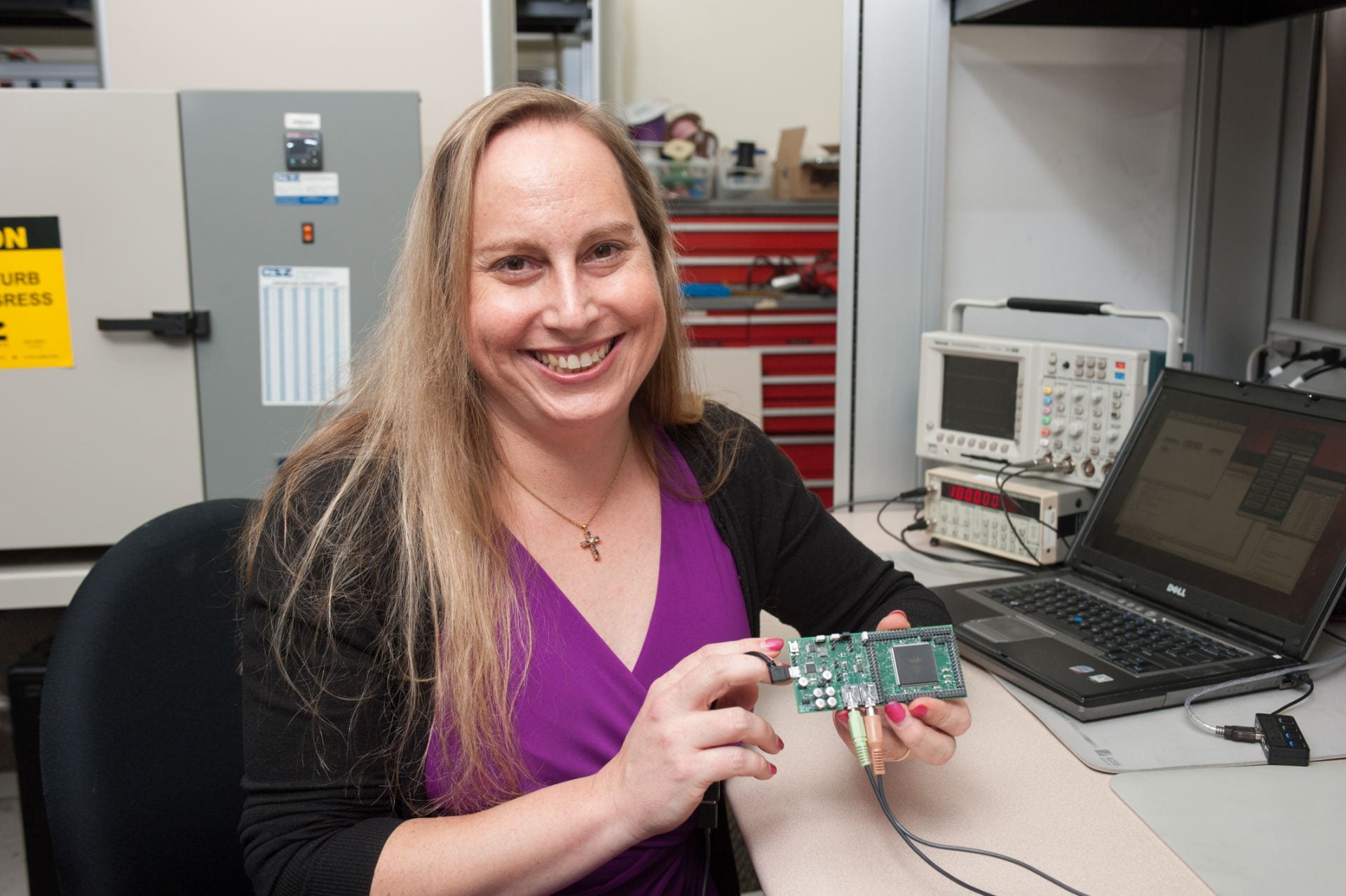Jennifer Hasler conducts research in analog and neurally-inspired computing, integrated with digital technologies when useful. She traces her interest in ECE back to seventh grade when two women from the University of Central Florida visited her class to teach introductory engineering concepts. In between her junior and senior years in high school, Hasler took a linear circuits class at Arizona State University (ASU) and fell in love with the material. She took four more courses in circuits and semiconductors and a course on VLSI digital design during her senior year in high school.
Enrolling at ASU as a full-time student, Hasler’s passion for circuits and related fields was already settled. Four years later, after earning her bachelor’s and master’s degrees, she decided to pursue a Ph.D. in computation and neural systems and then a career in academia, where she integrates experimental measurements into all of her courses. Hasler has provided a supportive and empowering space for leading and teaching students, which has led to the development of some very accomplished circuit designers.
One area that has been an unforeseen – but very fulfilling – part of Hasler’s career has been in commercialization activities. One example is her role as co-founder, chief science officer, and board member of GTronix (acquired by Texas Instruments in 2010), which developed analog integrated circuits for ultra-low power, small size, and cost-effective implementations in portable consumer electronics. “When I was a graduate student, I never expected that I would become involved in multiple commercial ventures that resulted from my research team’s efforts at Georgia Tech,” Hasler said. “But it has been personally rewarding to me to mentor even more individuals by being involved in this area.”
Hasler would like to see more positive media portrayals of engineers and scientists to influence middle school and high school students, and especially girls, to pursue engineering as a career. While the stereotype that engineers are antisocial individuals who do not talk with anyone and do the same repetitive job is far from the engineering she knows, Hasler believes such a life works well for some people and is glad that space is there for them. “Many engineers are constantly meeting, working in groups, and traveling all over the world for their job,” she said. “Many start companies and constantly expand their world view. And yet, for most middle school students, they don’t see this perspective. We as engineers have a lot of work to do in this area.”
